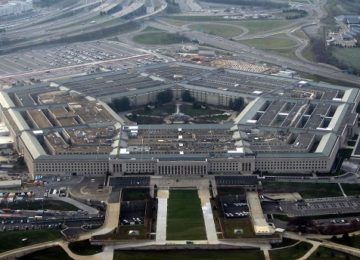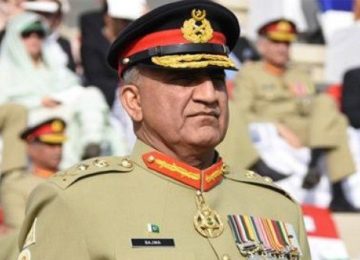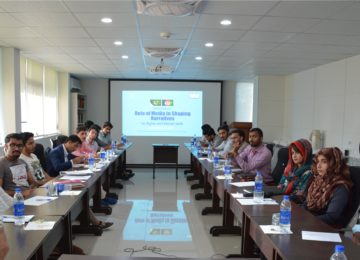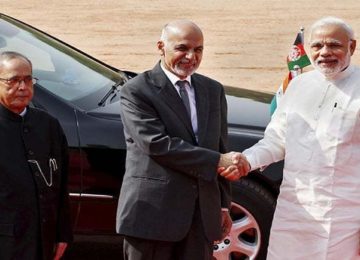By Frank Sun
The future of Quadrilateral Coordination Group (QCG) for peace talks on Afghanistan appears to be in tatters especially after President Donald Trump’s disappointing speech on USA’s new Afghan strategy. This is not the first time that US has tried to destroy the peace process which is obviously the only possible solution to the Afghan conflict. Last year too, the QCG negotiations were interrupted when a US drone killed Taliban leader Mullah Akhtar Mansour.
Trump’s administration is supposedly more interested in a military solution in Afghanistan rather than focusing on the rebuilding and development of the country for its sustainable peace. Military strategy is a road without an end, as evident from the fact that even after more than 16 years of war, most of the territory in Afghanistan is now regained by Taliban. The new strategy basically indicates that Trump has no patience for negotiating with Taliban, and US is more likely to shut the door of political reconciliation.
It is time for Afghanistan to abandon the US when President Trump is abandoning its “rebuilding” and investing only in consolidating the security crises in Afghanistan and the region. The world urges Afghanistan to pursue an “Afghan-led and Afghan-owned peace process” with the help of regional countries like Russia, China and India; the three biggest regional countries in BRICS summit that also declaimed their common concerns on Afghanistan’s reconciliation.
The silver lining appeared last December when Russia, China and Pakistan held a meeting in Moscow to chalk out a roadmap for Afghan peace process, which later expanded to 11 regional countries in its third meeting. At the moment, the Moscow initiative seems to be more relevant than ever and more feasible as almost all its participating countries agree on a political solution for Afghanistan.
Thus, it is a critical time for regional countries to pay attention to the Afghan peace process. From security perspective, Afghanistan is believed to be the second largest hideout for Islamic State (IS /ISIS/ISKP) and have already become a noteworthy threat to Moscow, Beijing, Islamabad and other neighbors. Kremlin also intends to carry out an anti-terror operation inside Afghanistan against Islamic State.
As for China, Afghanistan’s civil war and its side effects seem to be a big stumbling block for China’s “go west” strategy, named “belt and road”, which is considered a challenge to US global hegemony. China held the highly valued “Belt and Road Summit” four months ago which shows its economic ambition in the region.
Afghanistan and Pakistan recognize that there are militants on both sides of the border who are against any kind of peace and are carrying out violent activities indiscriminately. Kabul and Islamabad can work together through Moscow initiative or QCG meetings to come to a mutually acceptable modality in defeating terrorists across the border. To this end, the QCG called on all Taliban groups to enter the early talks with the Afghan government to resolve all differences politically and in accordance with the will of the Afghan people and the support of the QCG member countries.
Pakistan has made all efforts to push Taliban to the negotiating table, but the current bilateral relationship with Afghanistan has been at a low point following the series of terrorist attacks that happened on both sides earlier this year. However, Pakistan recently seems to be making some changes on the anti-terrorism and regional diplomacy front. Recently Pakistan’s foreign minister Khawaja Mohammed Asif pointed out that “Pakistan needs to change its direction swiftly”. With that, ice seems to be breaking between Pakistan and Afghanistan once again, as both the countries have recently agreed to build cooperation and meet on the sidelines of UN General Assembly this month.
Another aspect of Trump’s new Afghanistan strategy is that India was encouraged to play a more active role in Afghanistan, which would definitely put Pakistan in a position having two fronts. India already has economic ties with Afghanistan; however, defense supplies to Afghanistan by India will be of no help on political reconciliation. Rather, it would add to the crises in the region.. Afghan peace cannot be achieved without taking Pakistan on board. India should think twice about an Afghan solution that does not include Pakistan.
Besides, Trump’s instigation is just to share its responsibility with New Delhi to appropriate the US cost in Afghanistan which is similar to the Trump’s proposal of urging NATO allies to share the defense spending a few months ago. India has so far remained silent about this proposal. The Indian investment in Afghanistan is sinking while a few of its completed projects have also been badly sabotaged by Taliban.
The world had waited long for the newly elected president Donald Trump’s roadmap towards Afghan peace process and South Asia, but his approach consolidates the perceptions that the US intends to perpetuate the security crises, apparently for its own interests and not working for a feasible political solution in Afghanistan.. Maybe it is time for Asian countries to start solving their problems on their own.
The author Frank Sun is pursuing his Ph.D degree in International Relations at Yunnan University, China. He currently works at the Center for Research and Security Studies (CRSS) as a researcher.








